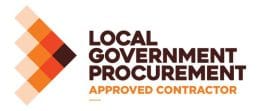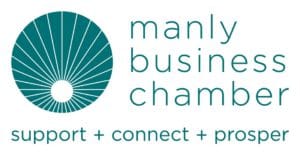ACING A PHONE INTERVIEW: 20 TIPS TO GET YOU THROUGH TO THE NEXT ROUND
It’s happened! You’ve spent the last few weeks applying for jobs, and now you’ve secured your first phone interview. What can you expect and how can you prepare for it?
In a phone interview (or phone screen), a recruiter will typically ask you questions about your skills and experience. They’ll also try to gain a sense of your potential fit for the role and the organisation. This will help them narrow the potential pool of candidates down to those that are the best match for the position. The average phone interview takes around 30 minutes. It might not sound long but you’d be surprised at how much can be covered in that time.
Rather than trying to wing it, take the time to research and rehearse, just as you would for an in-person interview. A little upfront preparation will make all the difference and could propel you to the next round of the selection process. Here are 20 quick-ish tips to help you on your way.
NOW:
1. Save the date!
- This one is obvious but easy to overlook, especially if you’ve got a lot on the go. Note the date and time of your phone interview as well as details on who is calling you and on what number.
A FEW DAYS BEFORE YOUR INTERVIEW:
2. Research your recruiter
Your recruiter will already know a lot about you from your resume and cover letter, and perhaps from your social media presence, too. So find out what you can about them by checking out their professional profile on their company website or LinkedIn.
3. Reread your resume and cover letter
Look through your initial application for the role, paying attention to information you have provided to your recruiter about your knowledge, skills, experience and interest in the role. As well as being prepared to speak about all these, you should be able to explain any gaps in your resume, and reasons for leaving specific jobs.
4. Review the job description for the role
Read through the job description, focusing on role responsibilities and requirements. If you’re the perfect fit, great! Think about how you’d demonstrate this to your recruiter. If you don’t tick all the boxes, consider what you’d say to prove you have the potential to grow into the role.
5. Research the organisation
A company website is always a good place to start. You might want to read about their mission, vision and values and what they offer their people, or check out the senior management team. If you know someone employed by the company, drop them an email or give them a call. And you could take a look at reviews and testimonials on Google or Glassdoor.
6. Check out salaries
Yes, this question may well come up at phone interview! Think about how much you are expecting to be paid in this role. Do some groundwork and you’ll have a carefully considered figure to give in response. PayScale, Glassdoor and Hays provide salary information for a variety of roles and work locations.
7. Gather your notes
Rather than tucking away this info in a corner of your brain, it can be a good idea to save it in a single document. You’ll be able to use it to refresh your memory on the day – and refer to it during your phone interview, too. Particularly useful if your mind goes blank, or if you have a number of interviews lined up for different roles.
8. Prepare your answers
Here are some classic questions/scenarios to prepare for (there are heaps more). Note that they are likely to vary according to the role you are going for.
- Tell me about yourself.
- How would your co-workers describe you?
- There’s a gap on your resume in 2019. What did you do during that 6-month period?
- Why did you leave that role?
- Describe a time when you have had to deal with a challenging customer.
- One of your team is struggling to achieve their KPIs. What did you do? What was the end result?
- What interests you about this particular role?
- Why would you like to work for this company?
It can be tempting to write out your answers in full, but you’ll risk sounding as if you’re reading from a script at interview. Instead, use bullet points or jot down key points. That way, you’ll have the info at a glance and the flexibility to tailor your responses on the day.
9. Rehearse!
Have a go at saying your answers out loud. You may want to ask a trusted friend or family member to play the role of recruiter and provide you with honest feedback on your performance. Alternatively, record yourself speaking so you can hear where your delivery lacks confidence or fluency.
THE DAY BEFORE YOUR INTERVIEW:
10. Put your phone on charge
Again, this one is a no-brainer, but you’ll avoid a last minute panic if your phone is on 100% going into your interview.
11. Ensure you are well rested
A good night’s sleep will ensure you are fresh and ready for your phone interview. (If you’re feeling groggy and have the time, clear your head with a 30-minute walk on the day).
12. Prepare your phone interview kit
As well as your phone, the following items should come in useful:
- Headphones
- Charger
- Copy of your resume, cover letter and job description
- Copy of your notes
- Paper and pen
ON THE DAY:
13. Set up your space
Choose a quiet area, e.g. a study nook at home or small meeting room at work, where you are unlikely to be disturbed for the duration of your phone interview. If possible, try to avoid busy areas, such as shopping malls and cafés. Turn off notifications on your phone and any other devices.
14. Dress to impress
It’s a phone interview so there’s nothing to stop you taking the call in your PJs (if you’re at home that is). But you might find that dressing professionally works wonders for your mindset.
15. Read through your notes
Have a final run through your notes and you’re all set.
16. Answer your phone
Let it ring a couple of times, then answer your phone confidently and professionally. Your recruiter may start the interview with small talk, e.g. about the weather. Engage with them and allow yourself to warm to the conversation.
17. Listen before responding
Give your recruiter time to finish their questions or sentences without interrupting. If you have misheard or misunderstood something, ask for clarification. It’s also ok to pause briefly before providing your response.
18. Speak confidently and naturally
Aim for a natural pace – not too fast and not too slow – and a clear, confident voice. This is why your practice run is so important! You may find that smiling helps to inject energy and enthusiasm into your responses. Try standing up. Some experts suggest that this can boost your confidence, too.
Keep to the point and provide enough supporting evidence to make your responses relevant and persuasive. If you’re quizzed about previous roles, try to be positive. Avoid stories of interpersonal conflict with past employers and co-workers; focus instead on job moves as opportunities for personal and professional growth, or to gain experience in a different industry sector.
Note any useful information that comes your way during your call. You may be able to refer to it in your phone interview, a follow-up message to your recruiter, or in the next round.
19. Ask questions
Typically at the end of a phone interview, your recruiter will ask if you have any questions. This is your chance to find out more about the role and the company – and demonstrate your keen interest in both. You may want to ask about something you have read on the company website, or next steps in the hiring process.
20. Thank your recruiter in writing
Send a brief follow-up email to your recruiter to thank them for their time and confirm your interest in the role. Ideally, you’ll want to do this the same day while the interview is still fresh in their mind and yours. Follow up again a week later if you haven’t heard back about potential next steps.
Good luck! If you have any winning tips for acing a phone interview, please let us know.










